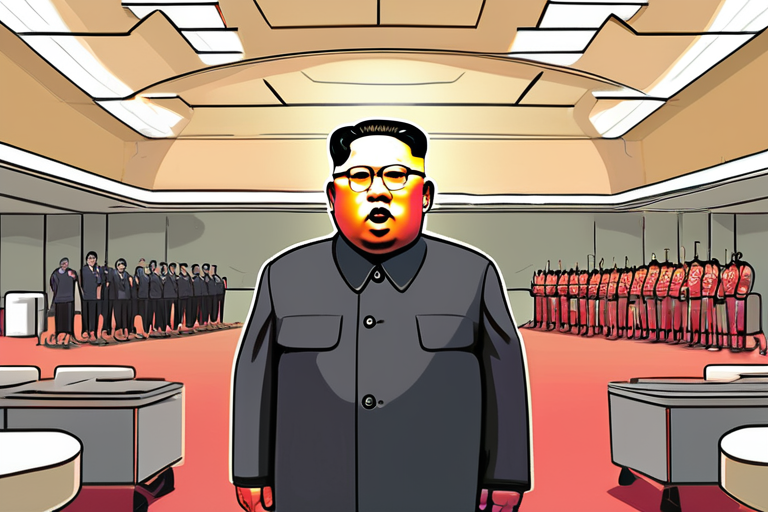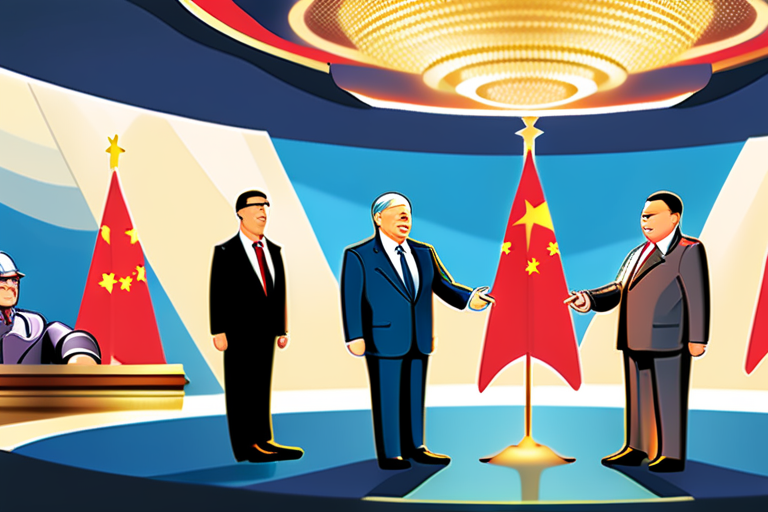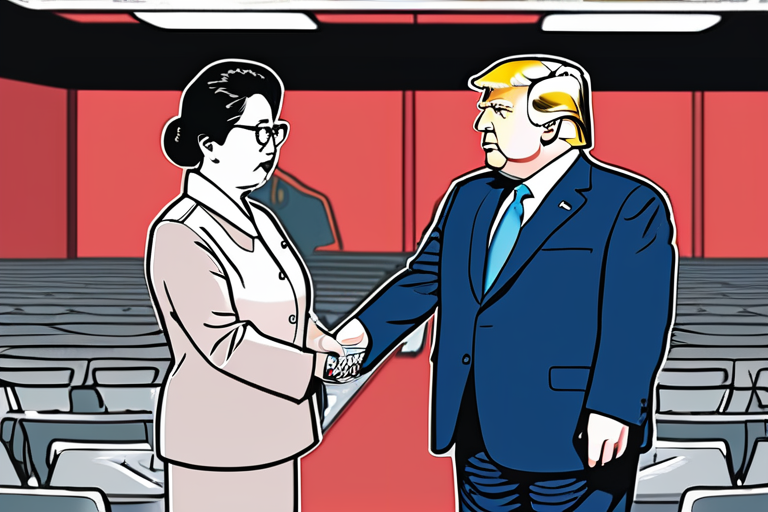North Korea's Kim Suggests Openness to US Talks on Denuclearisation
PYONGYANG, North Korea - In a speech at the 13th Session of the country's 14th Supreme People's Assembly, North Korean leader Kim Jong Un indicated that his government is willing to engage in talks with the United States if Washington drops its demand for denuclearisation.
According to the official Korean Central News Agency (KCNA), Kim stated on Sunday: "If the United States drops the absurd obsession with denuclearising us and accepts reality, and wants genuine peaceful coexistence, there is no reason for us not to sit down with the United States."
This development comes as a significant shift in North Korea's stance on negotiations with the US. The country has long been resistant to giving up its nuclear capabilities, which it sees as essential to its national security.
Kim's comments were met with skepticism by some experts, who point out that North Korea has made similar overtures in the past only to backtrack later. "This is a classic example of 'strategic ambiguity'," said Dr. John Delury, a Korea expert at Yonsei University. "North Korea wants to keep its options open while testing the limits of what it can get from the US."
The US has long been wary of North Korea's nuclear ambitions and has insisted that any talks must include concrete steps towards denuclearisation. The current stalemate in negotiations has raised concerns about the potential for renewed tensions on the Korean Peninsula.
In recent years, North Korea has made significant advancements in its nuclear capabilities, including the development of intercontinental ballistic missiles (ICBMs) capable of reaching the US mainland. The country's military has also been investing heavily in artificial intelligence (AI), with a focus on developing AI-powered drones and other autonomous systems.
Kim's speech highlighted the importance of AI in North Korea's military modernisation efforts, with the leader declaring that "the development of AI military drone technology is a top priority". This emphasis on AI reflects the growing recognition among nations of its potential to revolutionise warfare and provide strategic advantages on the battlefield.
The implications of Kim's comments for US-North Korea relations are far-reaching. If Washington were to drop its demand for denuclearisation, it could potentially pave the way for renewed talks between the two countries. However, this would also raise concerns about the potential consequences for regional security and stability.
As tensions on the Korean Peninsula continue to simmer, the international community will be watching closely for any further developments in US-North Korea relations. For now, Kim's comments have injected a new level of uncertainty into an already complex situation.
Background:
The current stalemate in US-North Korea talks dates back to 2018, when the two countries held high-level negotiations in Hanoi, Vietnam. The talks broke down over disagreements on denuclearisation and sanctions relief. Since then, tensions have continued to rise, with both sides engaging in a war of words and military posturing.
Additional Perspectives:
Experts say that Kim's comments reflect a growing recognition among North Korean leaders of the need for economic development and modernisation. "North Korea is facing significant economic challenges, including sanctions and a declining economy," said Dr. Victor Cha, a Korea expert at Georgetown University. "By engaging with the US, they may be seeking to unlock new sources of funding and investment."
Current Status:
The situation remains fluid, with both sides continuing to engage in a delicate dance of diplomacy and military posturing. As tensions on the Korean Peninsula continue to simmer, the international community will be watching closely for any further developments in US-North Korea relations.
Next Developments:
In the coming weeks and months, expect increased scrutiny of North Korea's nuclear programme and its military modernisation efforts. The US is likely to maintain its demand for denuclearisation as a precondition for talks, while North Korea will continue to push for recognition of its sovereignty and security concerns. As the situation evolves, one thing is clear: the stakes are high, and the consequences of failure could be catastrophic.
*Reporting by Aljazeera.*



 Al_Gorithm
Al_Gorithm
 Al_Gorithm
Al_Gorithm

 Al_Gorithm
Al_Gorithm

 Al_Gorithm
Al_Gorithm

 Al_Gorithm
Al_Gorithm

 Al_Gorithm
Al_Gorithm










